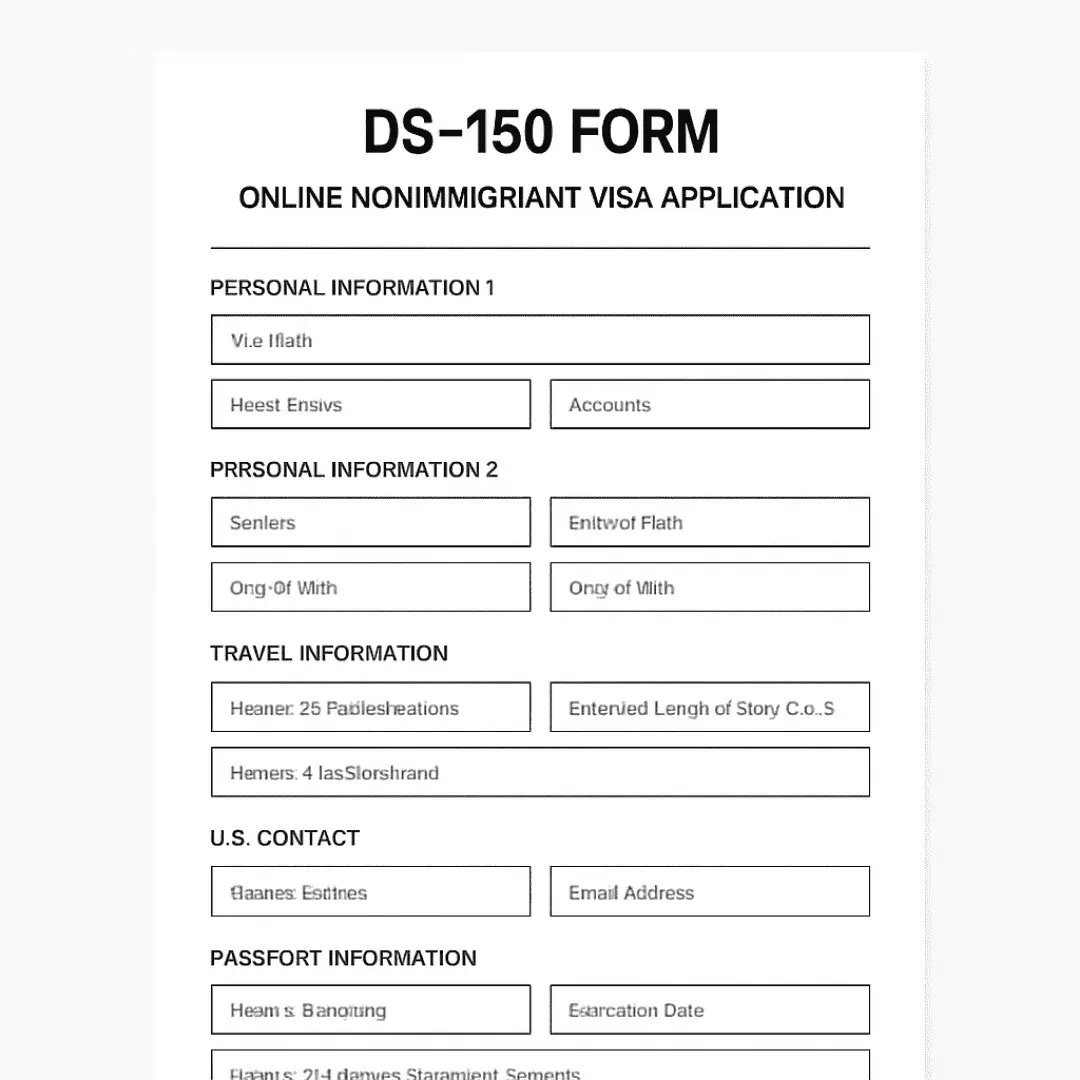We believe (indeed very strongly) that you go with so many dreams to another country or take the US itself. Dreams of having an incredible career, of course, college, friends, and overall experience. Just an admission to a good university, an easy visa alongside calm going study isn’t just enough. To attain a maximum level of skills and even to get future-ready, you have to train yourself no matter what. Both inside the college and if you aspire even outside your college. And, here’s good news! There are so many programs that you, as an international student, can access and take advantage of. One of them is the CPT program, and it is one of the famous ones out there. Literally, so many students get enrolled in it due to its surprising benefits. And this blog will guide all about the CPT dos, don’ts, and how-tos in the most comprehensive way possible. Therefore you can get empowered.
What is a CPT Program?
First and foremost, CPT is called Curriculum Practical Training that allows international students to explore and acquire employment and training. Now, that can be a simple or paid internship or even full-time or part-time jobs. All of the opportunities best be your interest areas or subjects or your specialization courses.
According to this program, the work hours would be something like this; 20+ hours for the students with full-time jobs, 20 or fewer hours for the students taking up a part-time job and getting paid in US dollars. As discussed earlier and as a matter of fact, so many students indeed enroll in Work-Study programs. However, the opportunities available for all of them will be fewer. Now, this happens because the universities in the US provide Work-Study only to domestic students. Well, that is also hugely paid by Federal funding. That means, you as an international student, can’t get any federal financial aid.
Furthermore, if you are still keen to take the program, you will have to put money from your pocket. You can do this via a private organization or also possibly from the office on campus.
To address this issue, programs like the CPT Work-Study exist. They help the international students earn paid roles in or outside the campus. You can start as immediately as in your first year of college itself; it’s that convenient. Here let’s look into the on-campus and off-campus programs.
On-Campus Employment
On-campus, working can be great to start without a doubt. The extra penny that you earn can help you quench your needs. You can get comfortable as it is the campus you study in, and in contrast, some students don’t like that. Talking about students who feel convenient working on the campus can be due to several reasons. They can be. Mostly these positions would be part-time means the students are necessitated to work 20 or fewer hours weekly. Whoever is interested and wants to get started can begin in their first semester—positions like tutor, fitness coach, campus ambassador, lifeguard, etc.

Off-Campus Employment
Unlike the on-campus, off-campus requires more effort and can be a little challenging, too, as long as you are comfortable traveling and can cope with that sort of stress. If you are one of those who need more exposure and want to understand the US work culture, then this is for you. You can do it even with an on-campus one, but an office outside the campus is technically out of the comfort zone. The positions that come under this program usually demand a minimum of 40 hours of work per week which again would help you gain more dollars.
If you wonder if there are any guidelines or parameters that you have to meet to go on off-campus employment in your first semester, then the answer is yes!
The international students can start in the first year if your college mandates employment as compulsory in the study curriculum. Or if it necessitates you to begin it immediately. Note that not all the courses or programs demand the CPT, whereas practical subjects like engineering and business do work better when you practice them in an actual workplace. Also, it’s not a mandate that you’ll be paid for your work. Rather you’ll get the best work experience possible and enhance your resume, so aim for it.
Benefits of CPT Programm
Consider the CPT program as a golden opportunity to earn extra money and experience. But, thinking that they are the only benefits you can get is probably not a good idea. That’s why we have all the benefits here in the following section.
1. International work experience:
Remember we spoke about your dreams in the introduction? Yeah, exactly since a career is such a vast perspective that made you come this far, you need to know that having an international working experience while studying is colossal. After your graduation, looking for a new job becomes considerably easy because you already have established your global connections by then. Do you see? That’s how simple and connected it is.
2. Networking:
The above benefit will be a little incomplete if you don’t network. And networking doesn’t just happen like that; it depends on how you approach your colleagues and the management. For which you need to practice socializing skills right from the word go. The best time to start networking is with your first impression, and you certainly know what that means.

3. Enhancing professional English:
Now the networking brings us to the next benefit. You can enhance your communication and especially your professional English speaking skills in the CPT process. This is likely to happen over time as you progress through your employment or internship. You’ll meet so many people daily, work with them on projects, and sometimes travel with them. Such as how you’ll improve your speaking and networking altogether. Another important thing here is that you can also learn and understand different industry jargon as you directly work with experienced industry professionals. How cool is that?
4. Greater chances of employment post-graduation
An international work experience in a country like the US is valued globally, and none can deny that. This indicates that you have greater chances of getting an excellent employment opportunity post-graduation. The work experience you earned will tremendously set you apart from the competition; see, you already have the upper hand. However, that doesn’t mean that other students are any lesser qualified, but you just happen to have that added advantage in your resume.
5. Whoopee! You can earn!
We put this at the end or consider that we saved it because it is both important and also not compulsory to have. The reason being that some competitive companies don’t offer any money to students but can be a heck of an experience that you don’t want to miss. On the other hand, students must satisfy their basic needs, and of course, they need this money. Otherwise, things will get a little to a lot complicated depending on their apparent situations. At last, we would say, think long-term, and you’ll surely get the benefit.
Are there any restrictions on the CPT?
A big yes! And let’s address the elephant in the room, indeed a must-read.
- You should get enrolled in a full-time course that too on a valid F1 Visa.
- You need to do it in your selected field of study or specialization.
- Next, the CPT should be an integral part of your course, or it’s a mandation from your college end, meaning it carries credit points.
- You should have an offer letter (job or an internship) prior to applying to a CPT authorization request.
Thankfully, many universities support international students in satisfying these requirements and getting started with their programs as soon as possible.

Let’s take a moment to also look at the steps to applying for a CPT program.
- Speak to your counselor and get a good piece of advice. (things like your eligibility, requirements, employers, and HTIR Work-Study details needs your critical attention)
- Pick a college-required CPT program to become an eligible candidate.
- Get an official offer letter from your employer. And some universities ask for certain specifications in the letter pay close attention to that as well.
- Apply for a college-specific CPTvia your college, and this authorization can take quite a few weeks; pre-planning is crucial here. Have requested documentation like the class registration proof with you.
- Next, you’ll get an approval document, either physical or via email (typically contains an outline of the start and end date). Take a print of it, and sign it and use it wherever required.
- Complete all the documentation as mentioned by your college working alongside your employer. And get started with your employer on your start date.
Summary
Like we always say, get educated. Ask questions, tons of questions; it should be that way too. To decide what’s good for you, you need first to know if something is good or bad in the first place. That’s what we do. We address all the good and bad things in the world of study abroad. By the way, do you need answers to your study abroad concerns? ASK US!
Here are People Also Ask (PAA) :
1. What is Curricular Practical Training (CPT) in hybrid programs?
Ans: CPT is employment authorization for F-1 students, enabling them to engage in internships or employment integral to their curriculum. In hybrid programs, which blend online and on-campus education, CPT allows students to gain practical experience alongside their studies.
2. How do hybrid programs with CPT benefit international students?
Ans: Hybrid programs offer flexibility through online coursework combined with essential in-person sessions. They provide opportunities for CPT, allowing students to apply theoretical knowledge in real-world settings, enhancing employability and practical skills.
3. Are there specific universities offering hybrid programs with CPT opportunities?
Ans: Yes, several universities offer such programs. For instance, Campbellsville University provides hybrid graduate programs with CPT and Optional Practical Training (OPT) opportunities.
4. What are the eligibility criteria for CPT in hybrid programs?
Ans: Eligibility typically requires F-1 students to have completed one academic year of full-time study. Some graduate programs may offer “Day 1 CPT,” allowing immediate participation. Employment must be directly related to the student’s field of study and integral to the curriculum.
5. How can students apply for CPT in a hybrid program?
Ans: Students should consult their university’s international student services office to understand specific application procedures. Generally, the process involves securing an employment offer related to their field of study, obtaining approval from their academic advisor, and receiving authorization from a Designated School Official (DSO).
For more detailed information on CPT and hybrid programs, visit University Hub.




